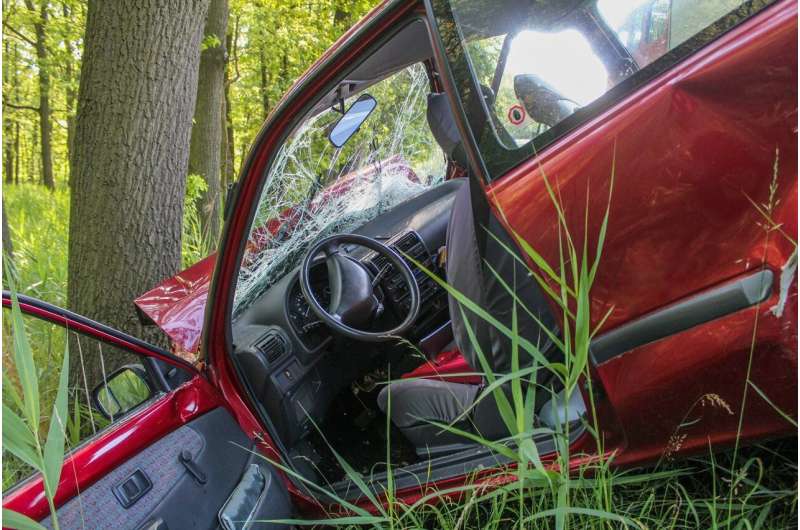Emerging 'Designer Drugs' Threaten Road Safety in the United States

New research highlights the rising threat of designer drugs to road safety in the US, emphasizing the need for expanded drug testing and awareness of synthetic opioids' dangers.
The danger of driving under the influence of drugs (DUID) remains a critical public safety concern, as impaired drivers face increased reaction times, compromised coordination, decreased alertness, and impaired cognition. These effects can lead to reckless and aggressive driving behaviors, significantly elevating the risk of traffic accidents. In the United States, 2021 data indicates that over 10,900 fatalities—comprising approximately 26% of all traffic deaths—were associated with drug-involved crashes. The continual emergence of new psychoactive substances (NPS), often called 'designer drugs,' further complicates efforts to curb drug-impaired driving. These substances, which are not regulated under international drug control treaties like the 1961 Single Convention on Narcotic Drugs and the 1971 Convention on Psychotropic Substances, pose significant threats to public health. Examples include designer benzodiazepines, synthetic cathinones, cannabinoids, piperazines, and tryptamines. Their full health impacts remain poorly understood, but known adverse effects include agitation, psychosis, aggression, and dependence.
A recent study published in Frontiers in Toxicology highlights the pressing need to expand routine drug testing after traffic crashes to include NPS. This comprehensive survey is the first of its kind in the US to assess the role of a broad spectrum of these substances in roadway accidents. Led by Dr. Roy Gerona of the University of California, San Francisco, the research analyzed blood samples from 1,000 adult crash victims in California between January and July 2024. Using high-resolution mass spectrometry (HRMS), the study detected NPS in 17 cases, with bromazolam being the most common, followed by para-fluorofentanyl and mitragynine. Other substances like acetyl fentanyl, protonitazene, and etizolam appeared less frequently.
The findings reveal that many NPS users often combine these drugs with traditional substances. Nearly all NPS-positive individuals also tested positive for other recreational drugs, such as cocaine, methamphetamine, or opioids. This mixing, known as poly-drug use, may occur either through adulterated drugs or intentional co-use to modulate effects, such as combining stimulants with depressants or illicitly engineered 'benzo-dope.' Such practices significantly elevate the risk of impaired driving and overdose.
Experts warn that synthetic opioids like protonitazene, which is 130 times more potent than morphine and even more potent than fentanyl, present a severe danger given their sedative effects, which can impair the ability to operate a vehicle safely. The difficulty lies in detecting these NPS, as most standard drug screens do not target them. Specialized and costly HRMS testing is typically necessary, limiting widespread screening.
The ongoing collection and analysis of data on NPS prevalence aim to inform policy changes and improve detection methods. Addressing this evolving threat requires increased awareness of the dangers associated with synthetic drugs, especially their adulteration of traditional illicit substances and their role in the opioid epidemic. As NPS continue to proliferate in the black market, comprehensive strategies are essential to mitigate their impact on road safety and public health.
[Source: medicalxpress.com/news/2025-06-drugs-pose-threat-road-safety]
Stay Updated with Mia's Feed
Get the latest health & wellness insights delivered straight to your inbox.
Related Articles
New Study Confirms Safety and Effectiveness of Monoclonal Antibody Therapy in Rabies Prevention
A recent clinical study confirms the safety and effectiveness of Rabishield, a monoclonal antibody treatment, in preventing rabies after animal bites, offering hope for better global rabies control.
Postpartum Brain Activation in First-Time Fathers May Enhance Parenting Readiness
New evidence reveals that first-time fathers experience increased brain activity in bonding-related regions when viewing their infants, which may support early parenting and emotional connection.
Traditional Chinese Medicine Compound Shows Promise in Preventing Heart Artery Spasms
A natural compound from traditional Chinese medicine, schisandrin A, shows potential to prevent coronary artery spasms, offering new hope for heart health treatments.
New Research Reveals Risks of Cannabis Vaping on Lung Health
New research from McGill University reveals that vaping cannabis releases toxic and cancer-linked substances that can harm lung cells, challenging the perception that vaping is a safer alternative to smoking.



